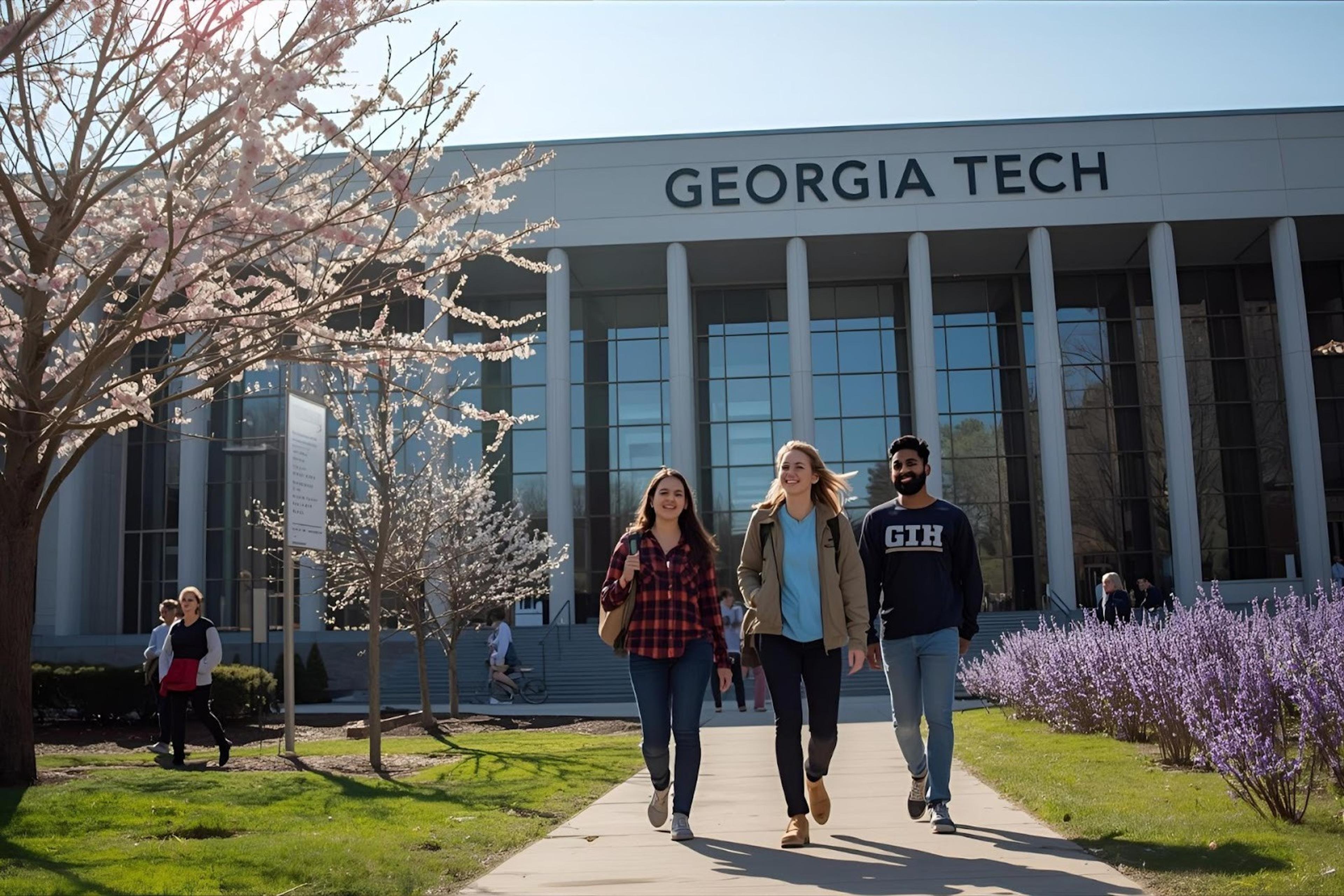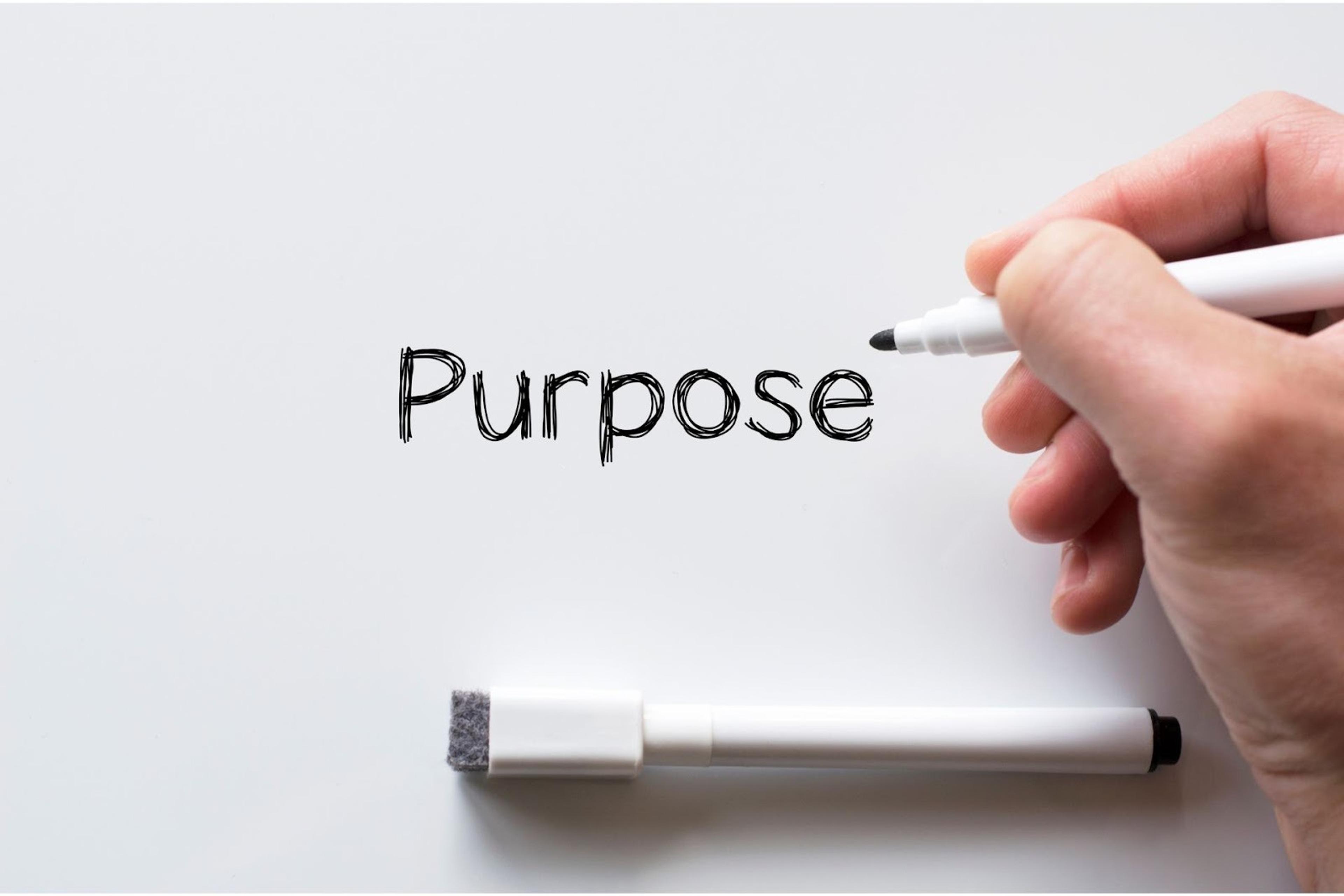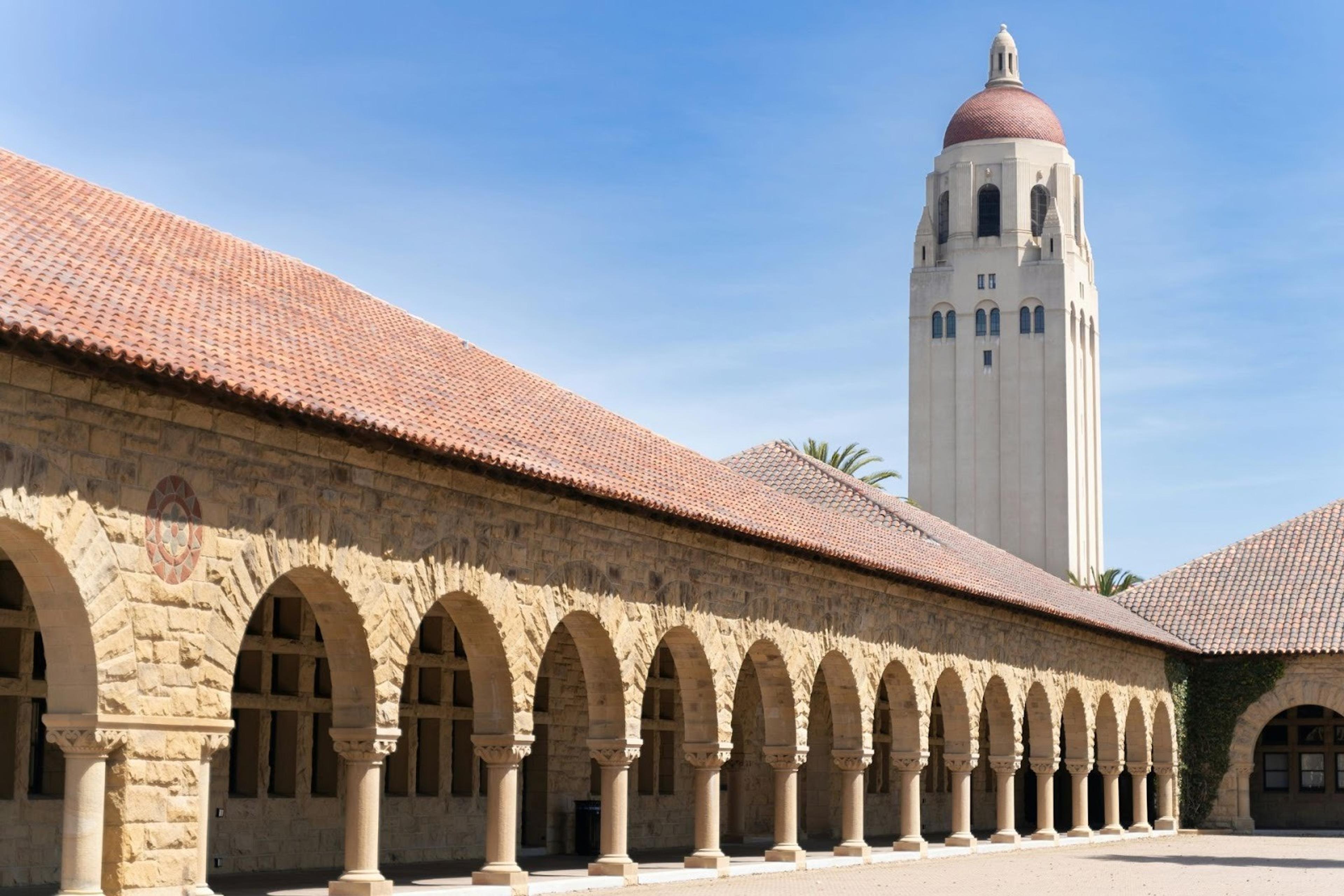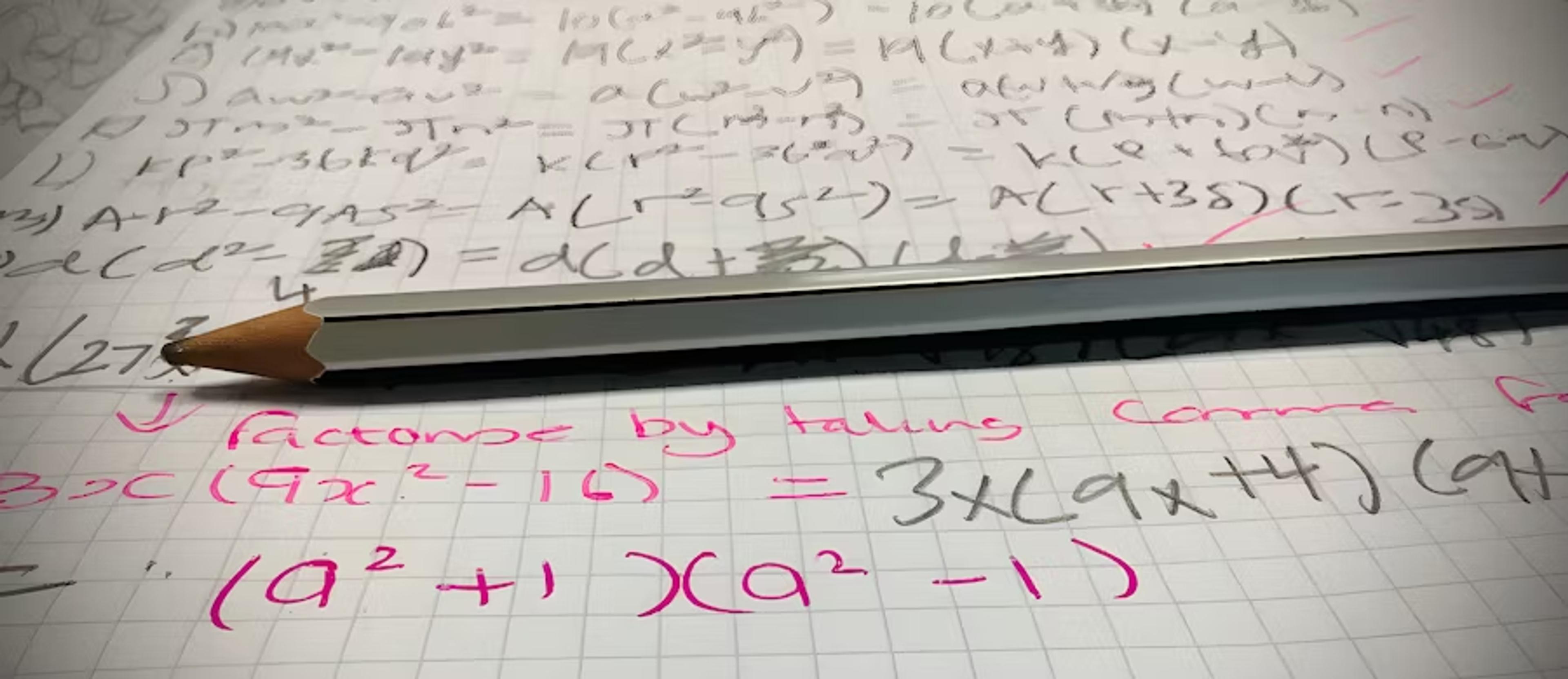10 Grad School Statement of Purpose Examples That Worked
See 10 real, strategic statement of purpose grad school examples, plus expert tips to write your own with clarity, purpose, and program fit.
Posted November 6, 2025

Join a free event
Learn from top coaches and industry experts in live, interactive sessions you can join for free.
Table of Contents
When applying to grad school, a strong statement of purpose can be your secret advantage. Many applicants focus on test scores and grades, but the admissions committees evaluating your file want more: they want to see academic and career goals, research interests, and a connection to the particular program you’re applying to.
Below, you’ll find ten real‑style mini‑scenarios of effective statements of purpose, followed by tactical commentary on why they work. Use these as models, not templates. Then we wrap with actionable advice and a planning checklist.
What Is a Grad School Statement of Purpose?
A grad school statement of purpose (SOP) is a focused, forward-looking essay that outlines an applicant’s interest in a specific program, their academic experiences, relevant experience, and long-term goals. It’s not just about what you’ve done, it’s about what you intend to do, and how the program is the bridge to get there.
Unlike a personal statement, which often emphasizes formative life experiences or challenges from a young age, the SOP is more academic and goal-oriented. It should make a clear case for your fit with the program: the specific professors, courses, labs, or research centers that align with your own interests. Whether you're hoping to join a cutting-edge Communicable Disease Department, collaborate with interdisciplinary scholars, or pursue applied policy research, your SOP should leave no doubt about your intent, direction, and readiness.
Think of the SOP as your pitch to the admissions committee. You’re not just telling your story, you're showing how your trajectory, skills, and goals intersect with their mission. That’s why intent is important. In fact, in many programs, it’s the most heavily weighted component of the application process after academic transcripts.
To write one that stands out, you need to do more than just summarize your resume. You need to begin drafting a narrative that’s personal, yet purposeful, one that captures the reader’s attention from the first paragraph and leaves a lasting impact by the final paragraph.
A strong SOP answers these core questions:
- What are your long-term academic and professional goals?
- What specific examples from your academic experiences or life experiences illustrate your growth and motivation?
- Why this specific program at this school?
- What do you bring that will enrich their academic community?
Let’s say the applicant begins their SOP with a vivid story, not just “I’ve always liked science,” but something real. One memorable example? A student wrote about Grandma Betty doggedly tracking family health histories in a spiral-bound notebook (a quiet ritual that became a huge inspiration and later evolved into a research interest in population health data). That kind of detail brings your narrative to life and grounds your goals in personal connection.
Another tip: don’t just state what you want, show it through specific examples. If you’re applying to a program in epidemiology, don’t just say you care about health equity. Point to the summer you interned at a local clinic, helped screen patients, or analyzed data that shaped real interventions in the communicable disease department. Detail your current position, the skills you've developed, and how this program fills the gap in your trajectory.
Read: Statement of Purpose vs. Personal Statement: Differences, Tips, & What to Know
10 Statement of Purpose Grad School Examples
These 10 statements of purpose grad school examples, richer and more tactical than most personal statement examples, show exactly how to tailor your admissions essay to a particular school, with the kind of focused analysis that contributed greatly to real acceptances:
Read: The Power of ‘I’ Statements in Admissions Storytelling
Example 1: Public Health (MPH Program) – Underserved Communities & Health Equity
Opening paragraph
My interest in public health emerged during my undergraduate studies in biology at State University, where a summer internship at a local clinic in an underserved community exposed me to the challenges of delivering preventive care in areas with limited resources. When I discovered the Communicable Disease Department at [University], I realized that the MPH program offers the interdisciplinary approach I need to link academic interests in epidemiology with actionable strategies to encourage safer sexual practices among young adults.
Academic background & research skills
As an undergraduate, I completed a senior thesis on the spread of sexually transmitted diseases in metropolitan areas, analysing data from local health authorities and developing a small outreach pilot that trained local peers as educators. This experience sharpened my research skills in quantitative analysis and community‑based intervention. I served as a research assistant in the university’s epidemiology lab under Dr. Smith, a faculty member whose work on health equity inspired me.
Research interests & professional goals
At your program, I hope to pursue research interests in modelling sexual health behaviour change among underserved communities and designing scalable peer‑led intervention frameworks. My academic and career goals include becoming a policy‑maker at a global health NGO, dedicating my professional development to designing programmes that effect tangible change in health equity and preventative health.
Fit with the program & community
The MPH program at [University] and its partnership with the city’s public health department make it an ideal environment for combining rigorous modelling work with on‑the‑ground implementation. I am particularly excited about collaborating with Dr. Lee, whose work on peer‑education models aligns directly with my career goals. I also look forward to contributing to the student‑led global health club and sharing my lessons from field work in Manila.
Closing paragraph
I am confident that this education program, with its strong foundation in interdisciplinary research and policy design, will enable me to achieve my ambition of reducing STI incidence among young adults in resource‑limited settings. I am ready to bring my academic journey, research experience, and professional interests to your academic community and graduate school cohort.
Example 2: Engineering (Master’s Degree) – Interdisciplinary Approach
Opening paragraph
From my early fascination with robotics, I knew I wanted a master’s degree that would allow me to bridge mechanical engineering and AI. The second‑year design project in my undergraduate studies led me to build a robot that assisted older adults with mobility tasks, a moment that sparked my decision to conduct research at the intersection of human‑robot interaction and assistive technology. When I found the MS program at [University] with its lab focused on multi‑modal assistive systems, I realized that this was the particular program where I could combine academic and career goals with impactful research.
Academic background & research skills
During my undergraduate studies, I majored in mechanical engineering and minored in computer science. My senior thesis involved integrating sensors, machine learning, and mechanical actuation into a prototype mobility device. I authored a conference paper and presented at [Conference], gaining early experience in communicating research and collaborating with a multidisciplinary team. Through this, I developed strong research skills, including algorithm development, systems integration, and user‑testing.
Research interests & professional goals
My research interests centre on designing intelligent assistive robots that leverage real‑time sensor data to adapt to users’ needs. In the longer term, I envision launching a startup that manufactures affordable assistive devices for aging populations, fulfilling my career aspirations to improve quality of life through technology.
Fit with the program & community
The MS in Robotics and Automation at [University] is the kind of graduate program that offers collaboration with both the [Lab Name] and the School of Engineering’s innovation hub. I am eager to work with Dr. Garcia, whose work on adaptive systems aligns with my interests. I plan to engage in the robotics club, mentor undergraduates, and bring my startup vision into the university’s entrepreneurial ecosystem.
Closing paragraph
I believe this strong statement of purpose encapsulates how my academic background, research experience, and professional journey converge. I look forward to joining your academic community, contributing to cutting‑edge assistive robotics research, and realizing my career goals in a meaningful way.
Example 3: MBA Program – Social Impact & Nonprofit Leadership
Opening paragraph
Witnessing my family member’s struggle while navigating nonprofit aid in the aftermath of a local disaster inspired me to chase a career in social enterprise. I realized that to drive scalable change, I needed advanced business acumen, which led me to apply to your MBA program, known for blending rigorous management training with social innovation. This particular program stands out because of its emphasis on ethical leadership and its strong partnership with the [Nonprofit Dedicated to] global relief efforts.
Academic background & research skills
At University X, I graduated in economics and undertook a capstone project analysing micro‑finance models in emerging markets. I also interned at a nonprofit dedicated to women’s economic empowerment, where I developed quantitative dashboards that tracked programme outcomes and improved decision‑making. While less technically “research,” I used analytical skills and developed professional experience in a field I am passionate about.
Research interests & professional goals
My academic and career goals include managing social enterprises that focus on underserved communities and designing metrics‑driven programmes that achieve measurable impact. I want to work at the intersection of business and social change, using my MBA to scale interventions that promote financial inclusion and build sustainable systems, fulfilling my career aspirations around leadership and social innovation.
Fit with the program & community
The MBA curriculum’s social impact core, its social entrepreneurship lab, and the strong alumni network make this program an ideal match. I plan to join the social innovation club, leverage the school’s consultancy projects, and work closely with Professor Johnson, whose research on micro‑enterprise aligns with my goals.
Closing paragraph
I believe this is more than just a professional move. It reflects my personal narrative, my academic journey, and my dedication to social change. This program offers the strong foundation and community I need to drive measurable impact, and I am excited to bring my passion for mission‑driven leadership to your cohort.
Example 4: Humanities (MA in Cultural Studies) – Personal Narrative & Fit
Opening paragraph
My grandmother, Betty, doggedly tracking the history of our local community’s migration story, sparked my lifelong fascination with culture, identity, and memory. That childhood experience led me to major in anthropology and write a senior thesis on how family lore and local festivals preserve immigrant identity, the kind of personal narrative that became the impetus for my decision to pursue an MA in Cultural Studies. When I found your program’s interdisciplinary approach and faculty strength in memory and migration studies, I realized this was the education program where I belong.
Academic background & research skills
As an undergraduate, I combined anthropology and history, took archive‑based and field‑based research courses, and conducted ethnographic interviews in my hometown. My research experience gave me archival research skills, field observation expertise, and the ability to synthesise qualitative data. I also co‑founded the campus cultural heritage club, which strengthened my community engagement and communication skills.
Research interests & professional goals
My academic interests include how memory becomes heritage and how local storytelling practices shape identity in post‑migrant communities. My long‑term professional goals are to work in cultural heritage institutions and advise community‑based programs for preserving local histories globally.
Fit with the program & community
Your MA offers courses with a faculty member like Dr. Khan, whose work in migration and memory fits perfectly with my interests. I look forward to contributing to the cultural history forum, collaborating with peers across disciplines, and presenting a paper drawn from my family’s migration story at the annual symposium.
Closing paragraph
By entering your program, I will fuse my personal narrative, rigorous academic work, and career aspirations into meaningful scholarship. I am excited to join your academic community and bring my passion for heritage, identity, and cultural studies to your cohort.
Example 5: Natural Sciences (PhD Program) – Deep Research Focus
Opening paragraph
From the moment I realized that complex X in the human cell had the potential to influence disease pathways, I knew I wanted to pursue a doctorate that would allow me to conduct research at the frontier of molecular biology. The PhD in Cell Biology at [University] stood out because of its cutting‑edge lab and strong mentorship model, exactly the habitat where I can hone my research skills and contribute meaningfully to most graduate programs’ expectations.
Academic background & research skills
In my undergraduate studies, I majored in Biology, completed a senior thesis investigating protein–DNA interactions, co‑authored a peer‑reviewed paper, and interned in a biotech company where I further developed my analytical and laboratory skills. This research experience gave me competence in data interpretation, lab techniques, and independent project management.
Research interests & professional goals
My research interests lie in investigating how epigenetic modifications influence cellular differentiation in disease contexts. My career goals include leading a research team in industry or academia, translating lab discoveries into therapeutic strategies, and mentoring the next generation of scientists.
Fit with the program & community
Your PhD program’s proximity to [Institution]’s translational research hub, and the fact that Professor Wang is pioneering work in epigenetics, exactly matches my research plan, making this the ideal graduate program for me. I intend to engage in the weekly lab seminars, collaborate with cross-disciplinary groups, and publish results within two years of arrival.
Closing paragraph
I am ready to bring my strong academic background, research experience, and professional goals to your lab. I believe this program will provide the rigorous environment I need, and I look forward to contributing to and learning from your academic community.
Example 6: Education Program (MEd) – Practitioner Focus
Opening paragraph
After working three years as a classroom teacher in underserved urban schools, I realized that to drive systemic change, I needed advanced training, so I’m applying to your MEd program focused on policy and practice in urban education. This strong personal statement aims to highlight how my professional experience and academic trajectory converge into an advanced degree that will enable me to become an instructional leader.
Academic background & research skills
During my undergraduate studies, I earned a BA in Education and completed a capstone on teacher retention in high‑poverty districts. I also led an after‑school programme, gathering qualitative data from students and faculty, which helped me develop research skills in mixed‑methods design, data collection, and stakeholder analysis.
Research interests & professional goals
My academic interests focus on how teacher professional development and peer‑mentoring programmes reduce turnover and improve student outcomes in urban schools. My career goals include becoming a director of professional development in a large district, designing and implementing programmes that support teacher efficacy and student achievement.
Fit with the program & community
The MEd’s emphasis on policy, leadership, and research aligns with the trajectory I am on. I intend to work with Dr. Martinez on her project about teacher leadership models and to engage with the school’s network of urban education practitioners.
Closing paragraph
With my professional journey rooted in urban classrooms, this program offers the ideal platform to deepen my understanding, refine my skills, and achieve my career aspirations of educational leadership. I look forward to joining your academic community and contributing meaningfully.
Example 7: Interdisciplinary Science (Environmental Science & Policy)
Opening paragraph
Growing up near a large gay population advocacy zone that faced serious residual industrial pollution gave me an early exposure to the idea that environmental justice and public health are deeply intertwined. That realization inspired me to seek a degree that brings together environmental science, policy, and public health. The MS in Environmental Science & Policy at [University] offers exactly the interdisciplinary approach I seek, positioning me to lead research at the interface of pollution control and community health.
Academic background & research skills
My academic background includes a bachelor’s in Environmental Science with coursework in toxicology, data analysis, and public policy. For my senior thesis, I evaluated pollutant dispersion models in urban neighbourhoods, collected local air‑quality data, and performed statistical modelling. This research experience sharpened my ability to interpret complex data sets and translate findings into policy recommendations.
Research interests & professional goals
My research interests include modelling exposure pathways between urban pollution and communicable disease incidence in underserved communities. My career aspirations include becoming a policy advisor at an international agency working on environmental health and leading programmes that improve outcomes for at‑risk populations.
Fit with the program & community
Your program’s combination of strong policy coursework, access to a network of environmental NGOs, and faculty like Dr. Nguyen, whose research spans health equity and environmental risk, makes it the perfect fit. I plan to join the policy lab, engage with peer‑led initiatives, and publish a policy brief within my first year.
Closing paragraph
Because my academic journey, professional interests, and research experience intersect at environmental health and justice, I believe this program offers the strong foundation I need to convert my aspirations into action. I look forward to joining your academic community and driving real‑world impact.
Example 8: Psychology (Clinical Psychology – Research Track)
Opening paragraph
It was during my volunteer work at a youth mental‑health centre that I realized how early interventions can shape life trajectories. That experience planted the seed for my desire to pursue the PsyD/PhD in Clinical Psychology at [University], where I hope to combine research on trauma‑informed therapy with community‑based outreach. This personal statement version emphasises my journey and my purpose.
Academic background & research skills
In my undergraduate studies, I majored in Psychology and completed a senior thesis on resilience among refugee youth, using both quantitative surveys and qualitative interviews. I also interned in a research lab where I gained research skills in survey design, statistical analysis, and therapy outcome measurement.
Research interests & professional goals
My academic interests include exploring how culturally sensitive interventions affect mental‑health outcomes in refugee‑serving clinics. My professional development goal is to become a licensed psychologist who also publishes research guiding policy and practice in underserved contexts. I see a pathway that links direct service with scholarly work and systems change.
Fit with the program & community
The program’s dual focus on clinical training and research, plus the mentorship of Dr. Patel, whose work with refugee populations I’ve followed, makes this an ideal environment. I intend to join the community engagement initiative, mentor undergraduate researchers, and present at national conferences.
Closing paragraph
My academic and professional journey, combined with focused research experience, brings me to you ready to engage, contribute, and learn. I believe this program will provide the rigorous environment and community I need to turn my career goals into action.
Example 9: Computer Science (Data Science – Artificial Intelligence)
Opening paragraph
At age twenty‑three, while interning for a startup analysing social‑media patterns, I encountered a dataset of thousands of posts from users with mental‑health concerns. I became fascinated by how machine‑learning models could interpret these signals and support early detection. That moment convinced me to pursue a PhD in Data Science, and I've chosen your program’s strong AI lab as the particular program where I can explore large‑scale modelling of human behaviour.
Academic background & research skills
My undergraduate studies were in Computer Science, with a senior thesis on natural‑language processing and classifier development. I authored two peer‑reviewed papers and developed software that has been used by a nonprofit in Vietnam to analyse social‑impact data. These experiences honed my research experience, algorithmic design skills, and ability to translate data into meaningful insight.
Research interests & professional goals
My research interests include exploring multi‑modal deep‑learning systems to model human‑computer interaction in mental‑health contexts. My career aspirations include founding a research group that builds ethically‑grounded AI tools for social good, and eventually teaching as a professor or leading a research lab.
Fit with the program & community
Your program’s Data Science Institute, strong emphasis on ethical AI, and faculty like Dr. Kim, whose work in human‑AI interaction I’ve followed, make it the ideal graduate school application focus for me. I also plan to engage with the student‑led AI for Social Good initiative and publish open‑source code with peers.
Closing paragraph
Bringing together my academic and professional journey, research experience, and passion for ethical AI, I believe I am ready to join your academic community and contribute to meaningful innovation.
Example 10: Public Policy (MPP Program) – Global Governance & Development
Opening paragraph
Growing up in a city marked by migration and economic disparity, I witnessed firsthand how policy decisions shape human lives. That lived experience motivates me to apply to your MPP program, which emphasizes governance, design of public systems, and professional interests in global development. I believe this is the most graduate program that aligns with the social change trajectory I’m pursuing.
Academic background & research skills
During my undergraduate studies in International Relations and Economics, I completed a senior thesis analysing the impact of migration on urban services in Southeast Asia. I interned at a policy think‑tank, developed dashboards tracking refugee flows, and presented findings to local authorities. These experiences developed my research skills, data‑analysis capability, and policymaker‑facing communication.
Research interests & professional goals
My academic interests include the design of resilient public‑service systems in high‑migration contexts, with a focus on equity and human rights. My career goals are to work at an international organisation driving policy reform for refugee‑serving communities, and eventually serve as an advisor shaping global governance frameworks.
Fit with the program & community
Your MPP’s global governance concentration, its practicum with international partners, and faculty like Dr. Sanchez, whose work I admire, make it the perfect graduate program for my goals. I plan to join the policy lab, collaborate across departments, and publish a case study on urban migrant integration within two years.
Closing paragraph
With a focused academic journey, relevant research experience, and driven professional aspirations, I am excited to join your academic community. I believe this program will give me the tools, mentorship, and environment to transform my ambitions into impact.
What Makes These Samples Work
| Element | What Strong SOPs Do | What Weak SOPs Miss | How to Apply This in Your Draft |
|---|---|---|---|
| 1. Clear Purpose & Narrative Arc | Opens with a meaningful trigger moment (e.g. volunteer work, internship, personal story) that frames the applicant’s interest and academic journey. | Starts with “I’ve always liked X” or “Since a young age…” with no clear connection to current goals. | Start your SOP with a hook that ties your story to your goals. A powerful story like “Grandma Betty doggedly tracking family health records” can make your motivation memorable. |
| 2. Specific Research Interests | Includes specific examples of academic work and clearly defined research interests that align with the program. | Talks about “interest in research” without depth or direction; no mention of what you want to study or how. | Mention a precise research focus like “peer-led intervention frameworks” or “modeling STI spread in urban areas.” This level of analysis contributed greatly to accepted SOPs. |
| 3. Program & Faculty Fit | Names the particular school, program features, labs, and specific professors. Shows genuine understanding of what makes the program unique. | Feels generic, could be submitted to any school. No mention of why this program exists or how it fits. | Research the program deeply. Name 1–2 faculty members whose work aligns with yours. This signals to the admissions committee that you’ve done your homework. |
| 4. Academic and Professional Goals | Clearly outlines both short-term academic goals and long-term career goals. | Mentions goals vaguely (“I want to make an impact”) without explaining how or why. | State your next steps: “I plan to conduct research in the communicable disease department, then lead a nonprofit focused on public health in underserved communities.” |
| 5. Strategic Balance of Experience | Blends academic experiences, professional experience, and life experiences into a cohesive, focused narrative. | Lists resume bullets without connecting them to the applicant’s purpose or goals. | Highlight how your current position, academic background, and personal motivations intersect. Mention relevant experience, like data collection or fieldwork. |
| 6. Language of Readiness & Contribution | Uses confident, proactive language like “contribute to your academic community,” “build on existing research,” “engage with peers.” | Passive or overly humble, focuses only on what the program will give you, not what you’ll bring. | In your final paragraph, recap not just your goals, but how you’ll contribute to the school’s community and research mission. |
| 7. Avoiding Generic Clichés | Avoids overused lines like “ever since I was a child…” or “I’ve always been passionate about…” | Relies on broad or sentimental statements with no evidence or strategy. | Instead of “I love helping people,” write about the summer clinic where you presented to local authorities or the lasting impact of a project. Reddit calls this “show, don’t tell.” |
| 8. Strong Structure & Flow | Follows a clear structure: intro → background → goals → fit → final paragraph. Each section builds on the next. | Disorganized or repetitive. No clear thesis or through-line. | Outline before you begin drafting. End with a final paragraph that reinforces your fit and readiness, not just a summary, but a confident close. |
| 9. Intent + Direction | Shows not just what you want to study, but why now, why here, and what’s next. Intent is important. | Lacks a sense of urgency or direction. Feels like a backup plan, not a next step. | Make your application process feel like a natural progression. What are you building toward in five years, and how does this program fit into that? |
| 10. Authenticity + Voice | Feels personal, grounded, and genuinely motivated. Even small details (like being twenty-three years old and interning in public health) add richness. | Feels robotic or AI-generated. Lacks voice, reflection, or specificity. | Write in your own voice. You don’t have to be dramatic. Just be clear, confident, and sincere. Authenticity + structure beats drama every time. |
If you're not sure whether your SOP is doing that yet or how to improve it, a top master’s programs coach can help you shape your story, sharpen your language, and make sure your analysis contributes greatly to your acceptance.
Your Next Step: Crafting a Statement of Purpose That Actually Gets You In
A strong SOP isn’t about writing a perfect essay in one sitting. It’s about building a clear, strategic case for why you belong in a particular grad program and why now.
Here’s how to get there, step by step:
Start With Strategy, Not Sentences
Before you write anything, get clear on your academic and professional trajectory.
Ask yourself:
- What specific moment sparked your interest in this field? (Think: research project, job, internship, life experience, something that shows intent.)
- What research experience, academic background, or professional experience proves you’re ready for grad school?
- What are your academic and career goals, and how will this program help you reach them?
Write these down. Your SOP should build directly from this raw material. If you don’t have clarity here, you’ll struggle to write a compelling draft.
Reverse-Engineer the Program Fit
This is where most applicants fall flat.
Admissions committees want to know: why this particular program, not just “any graduate school”?
Do this:
- Choose a specific program (not just a university).
- Identify 1–2 faculty members whose work aligns with your own interests or goals.
- Note labs, research centers, clinical sites, or community partnerships you could engage with.
- Think through how you’ll contribute to their academic community, not just benefit from it.
This signals maturity, preparation, and mutual fit, exactly what admissions committees look for.
Outline Before You Write
Follow this proven SOP structure (which overlaps with many top programs’ expectations):
- Opening paragraph – a strong hook + your driving motivation
- Academic background – relevant coursework, projects, and foundational knowledge
- Research experience + goals – what you’ve done, what you want to study, and why it matters
- Program fit – why this particular school, faculty, and resources match your trajectory
- Final paragraph – recap your goals and show you're ready to contribute
Bonus tip: Many successful applicants begin with a high-impact anecdote that frames their path forward. You’re not writing a novel, but you are telling a story. Think: “How do I earn the reader’s attention from the first line?”
Draft With Clarity, Not Clichés
When you sit down to write your first draft, aim for clarity, precision, and voice, not lofty language or overused tropes. Phrases like “I’ve always been passionate about…” or “Since a young age…” might feel sincere, but they signal a lack of depth and originality. The admissions committee isn’t looking for childhood dreams; they’re evaluating your academic readiness and future direction. Instead, ground your motivations in specific examples: a research project that challenged you, a work experience that revealed a gap you want to study, or a turning point that sharpened your goals. Let your writing sound like you (polished, yes, but still human). And make sure every paragraph points forward. A strong statement of purpose doesn’t just recount your past; it builds a compelling, intentional case for what comes next, and why this program is the right place to pursue it.
Use Keywords Strategically, Not Stuffily
Yes, you want to include terms like:
- “graduate school,”
- “graduate program,”
- “undergraduate studies”
- “academic background,”
- “professional goals,”
- “research interests”
But use them where they fit naturally. Don’t cram them in for SEO or word count. An effective SOP flows like a compelling academic pitch, not a keyword checklist.
Pro tip: Some programs use keyword filters in early reads. So, including terms like “conduct research,” “academic journey,” or “statement of purpose” can help as long as it sounds natural.
Revise Like an Editor, Not an Applicant
The first draft of your statement of purpose is not your final draft; it’s your raw material. The most competitive SOPs are the product of 5 to 10 rounds of deep, deliberate revision. Treat your draft like an editor would: step back for a day or two to reset your perspective, then return with a critical eye. Read it aloud to catch awkward phrasing, uneven flow, or weak transitions. Cut anything that sounds generic or doesn’t serve your core message. Strengthen verbs, tighten structure, and make every sentence earn its spot. Then, get outside feedback, ideally from someone who’s been through the process: a professor, mentor, Leland coach, or recent admit. A strong SOP is not just well-written; it’s stress-tested.
As one Redditor put it: “You can absolutely write a killer SOP, but not on your first try. Feedback + time = magic.”
Don’t just revise for grammar, revise for clarity, strategy, and impact.
Tailor Each SOP to the Program
This is non-negotiable.
Even if you reuse 60–70% of your content, the rest should be custom-fit to:
- That school’s mission, curriculum, and community
- That department’s unique features (labs, partnerships, values)
- That faculty’s work or research direction
The admissions essay is your chance to show that you’re not just applying to grad school — you’re applying to this grad school. And the admissions committee can spot a generic SOP from a mile away.
Pro tip: Once your final paragraph is done and polished, ask yourself: “Would a faculty reader remember this statement after reading 50 others?” If not, revise. Strong SOPs are memorable because they’re specific, intentional, and tailored. That's how your analysis contributes greatly to your success, not just in getting admitted, but in launching a grad school experience that fits your goals.
To craft a clear, compelling grad school SOP that highlights your strengths and aligns with what admissions committees actually want, download: Statement of Purpose Writing Guide & Examples
Bonus: How to Write a Letter of Intent for Grad School
A letter of intent for grad school is a focused, formal statement that outlines your academic background, professional experience, and future goals, while clearly expressing your interest in a specific program. Unlike a personal statement, which may lean more personal or narrative, a letter of intent is typically more direct and structured.
In one concise page, you should state the degree you’re applying for, briefly highlight relevant coursework or research, and explain how your skills and interests align with the program’s strengths. Be sure to mention specific faculty, labs, or resources that make the program a strong fit. End with a confident closing that reaffirms your intent to apply and your enthusiasm for contributing to the academic community.
Read: How to Write a Killer Letter of Intent for Graduate School
Final Submission Checklist
Before you submit, make sure you can answer “yes” to each:
- Is there a clear opening hook that frames your purpose?
- Does your essay describe your academic background, research skills, and professional experience in concrete terms?
- Are your research interests and academic and career goals clearly stated?
- Do you explicitly mention how you’ll fit into the graduate program, and even name a faculty member or lab?
- Does the essay feel personal, specific, not generic, or full of clichés?
- Did you tailor it to the school’s prompt and follow its length guidelines?
- Has someone else read it and given feedback?
- Are keywords like “graduate school”, “graduate program”, “research interests”, “academic background”, and “professional goals” integrated naturally?
- Does it avoid irrelevant details (hobbies not tied to goals, irrelevant stories) and focus your story on research, academics, and your future?
- Are your career aspirations and how the degree supports them clearly articulated?
- Does it convey how you will contribute to the academic community of the school?
Final Thoughts: Your Statement of Purpose Is Your Case for Admission
A standout statement of purpose doesn’t happen by accident. It’s intentional, strategic, and deeply personal. It connects your academic background, research interests, and professional goals into a clear, forward-looking narrative, one that shows admissions committees exactly why you belong in their program and what you'll contribute once you're there.
As you've seen in the examples above, strong SOPs are well-structured, self-aware, and tailored to each particular school. They avoid fluff and clichés, highlight specific examples of impact, and make your intent important from the very first line to the final paragraph.
If you’re feeling stuck, overwhelmed, or unsure whether your draft is working, don’t wing it. Work with a master’s programs coach who’s helped others get into top programs just like yours. Find your perfect coach here. Also, join our free events for more strategic insights!
See: The 10 Best Graduate & PhD Admissions Consultants (2025): What They Do and When to Hire One
Read next:
- The Top 10 Mistakes People Make on their Graduate School Applications
- Beyond the Checklist: How to Showcase Your Unique Skills and Experiences in Your Grad School Applications
- What Extracurriculars are Graduate Programs Looking For?
- Why ChatGPT Can’t Write Your Personal Statement
- A Word of Caution on Application Essays and AI
- What GPA Do You Need to Get Into Graduate School?
- What Does "Holistic Review" Mean in Graduate School Admissions?
- Graduate Admissions: Myths Busted!
FAQs
How many words should my statement of purpose be?
- Check the program’s guidelines. Some ask ~500 words, others up to 1,000. For example, Stanford University recommends up to 1,000 words.
What’s the difference between a personal statement and a statement of purpose?
- Great question. As one Redditor put it: “A SOP mainly focuses on your research experiences & why you want to go to grad school… The personal statement is more about you and your journey, drive, and passion.” In many applications, you’ll need both, so know which you’re writing.
Can a weak SOP ruin my chances?
- Yes. One Reddit user wrote: “A bad SOP will ensure you won’t get into a top program.” Even if the rest of your file is strong, your statement is a critical piece.
Should I mention my GPA, GRE, or test scores in the SOP?
- Generally no. Those go in other parts of the application. The statement should highlight academic and career goals, research interests, and fit. Focus on narrative and contribution.
What if my research experience is limited?
- Then lean into your analytical coursework, capstone, internships, or even professional experience. Emphasize your ability to learn research skills, your academic background, and how the particular program will develop your research capacity. Remind yourself: it’s about potential and fit.
Browse hundreds of expert coaches
Leland coaches have helped thousands of people achieve their goals. A dedicated mentor can make all the difference.



















